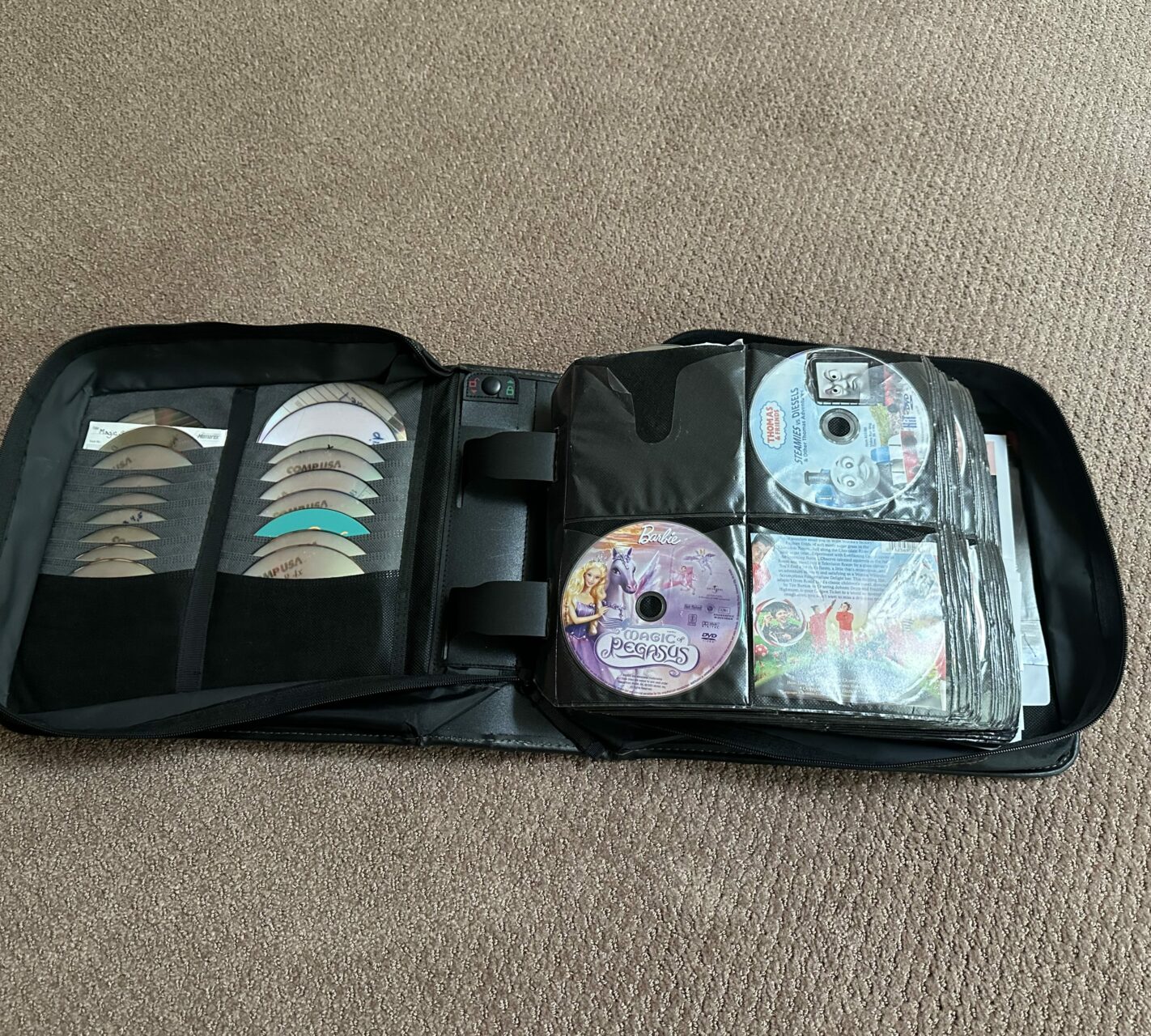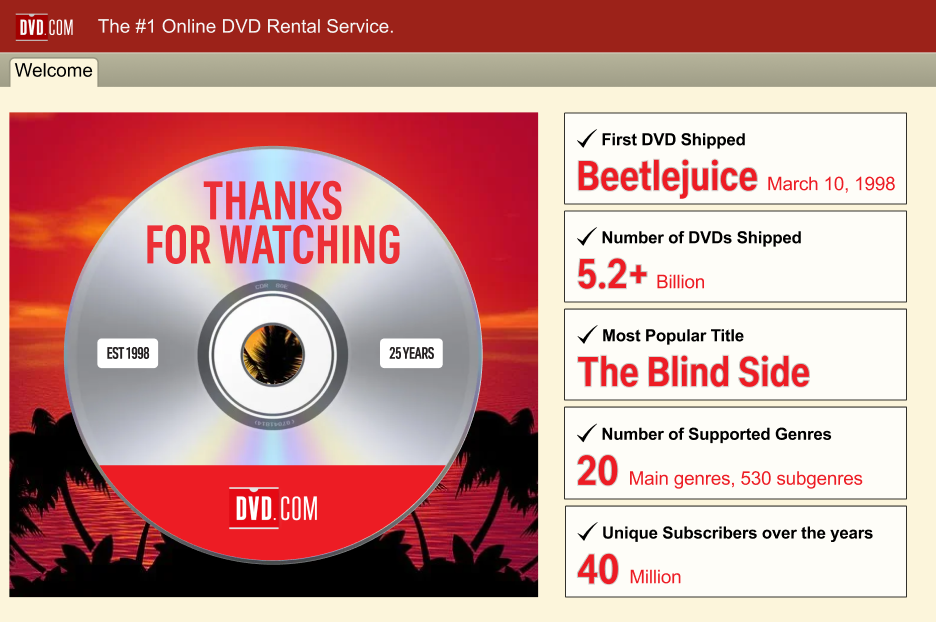
Many people can remember movie nights growing up. People knew friends with shelves simply covered in DVD cases. Minutes were spent tracing titles with a finger, recalling just how good the movie was the first time around. Eventually, a movie would be chosen, popcorn would be popped, lights would be dimmed, and roughly an hour and a half would be spent watching another life in a different world.
Now, as time has passed, DVD and Blu-ray players are much scarcer. The market has changed. Streaming services from Netflix and Disney+ to Max and Peacock have appeared, boasting thousands of different choices.
Even as markets change, some BYU students believe that DVDs and Blu-ray Disks are here to stay.
While some students might prefer to use streaming services to watch content, others continue to utilize physical media to watch their favorite movies.
BYU senior Tim Jafek remembers watching both VHS and DVDs when he was younger. When he was 10 years old, his family stopped buying new DVDs and instead began renting disks on Redbox. Since he came to college, he has not had access to a disk player to watch movies.
“I think I haven’t touched a disk in four years,” Jafek said.
Instead, Jafek uses streaming services paid for by both his parents and himself to watch movies. He has noticed that if he or his roommates wanted to watch a show on a specific streaming service, at least one of his roommates would have that streaming service, allowing them access to several different platforms.
BYU senior Anna Roth also grew up watching DVDs and Blu-ray disks with her family. When she left for college, her family had a spare Blu-ray player that she took with her. Over the course of her time at college, her parents bought her movies to watch on physical disks for her birthday and Christmas.
“I was the main ‘DVD friend’ for my first three years of college,” Roth said.
Roth said even with access to these disks, she still watches streaming services “way more” than her DVDs. She said the ability to watch movies anywhere is more convenient for her.
Chicken Soup of the Soul Entertainment announced their own platform for streaming movies, Crackle Plus, on May 14, 2019 in cooperation with Sony Pictures Television. The company later purchased Redbox, a DVD rental kiosk company, on August 11, 2022. These two ventures allow Chicken Soup of the Soul Entertainment the ability to work with customers to supply their individual needs.
Laura Florence, Senior Vice President and General Manager of Digital for Chicken Soup of the Soul Entertainment spoke about the difference between physical and digital media. According to Florence, the two types of media, physical and digital, are complementary markets with different supply chains.
“As the marketplace is evolving and more things are moving to digital, having a multitude of different offerings, both physical and digital, has been good for us,” Florence said.
“This business is changing and it’s all about what the customer wants,” Florence said. “I’m genuinely excited to see where this business goes to provide the best customer experience.”
BYU senior Zac Shakespear believes media is becoming more and more hybrid as time goes on, where people have both digital copies of movies, as well as physical copies. He said he doesn’t think it’s “super likely” that physical copies of movies would ever go away completely.
“They would still exist, but would not be widely used,” Shakespear said.
While there are benefits to streaming services provided by these and many other companies, Jafek, Roth and Shakespear each said physical media is here to stay. Roth compared physical media and streaming services to paper books and the Kindle.
“People like to have copies of physical things,” Roth said.
Roth said she loved being able to look through the disks her family owned and pick out her favorite ones to watch. She wants her future children to have the same feeling.
Jafek said there will always be collectors and people who are skeptical of new technology and want to rely on physical media. Companies interested in selling disks will find ways to market them to those customers.
A brief history …
Blockbuster first started in Texas on Oct 19, 1985, growing to an international business with over 1,000 stores in the early 1990s. Originally only renting VHS tapes, Blockbuster began renting DVDs after DVD’s first creation in 1996. A new competitor appeared on the scene shortly afterward — Netflix.
Netflix decided to change the way media was disseminated and movies were watched. Instead of physical locations, Netflix began as a DVD rental company that shipped disks directly to homes. On March 10, 1998, the first DVD was mailed, featuring the film “Beetlejuice.”

People quickly became enamored by the new business model. Instead of browsing a store with a possibly limited selection, people could rent a DVD from an online list and have it shipped directly to their mailbox. The popularity of the service quickly grew.
Blockbuster struggled to keep up with the changing times. In 2004, the company launched an online portal to allow customers to rent movies through the mail. Their efforts were unsuccessful, and Blockbuster eventually filed for bankruptcy in 2010.
Netflix began hosting streaming services on their website in 2007. This allowed customers to view shows immediately upon purchase, rather than waiting for their disk in the mail. The first successful streaming service to hit the internet attracted several different competitors over the years, including Amazon Prime, Hulu and Disney+.
As time has gone on, Netflix has eased away from their original DVD rental mail service. Their subscribers were more interested in watching videos on demand than waiting for disks to arrive in the mail. On April 18, 2023, Netflix announced that their DVD rental business would mail out the last DVD on September 29, 2023. According to their statement, Netflix’s rental business shipped more than 5.2 billion disks over the 25 year period.




